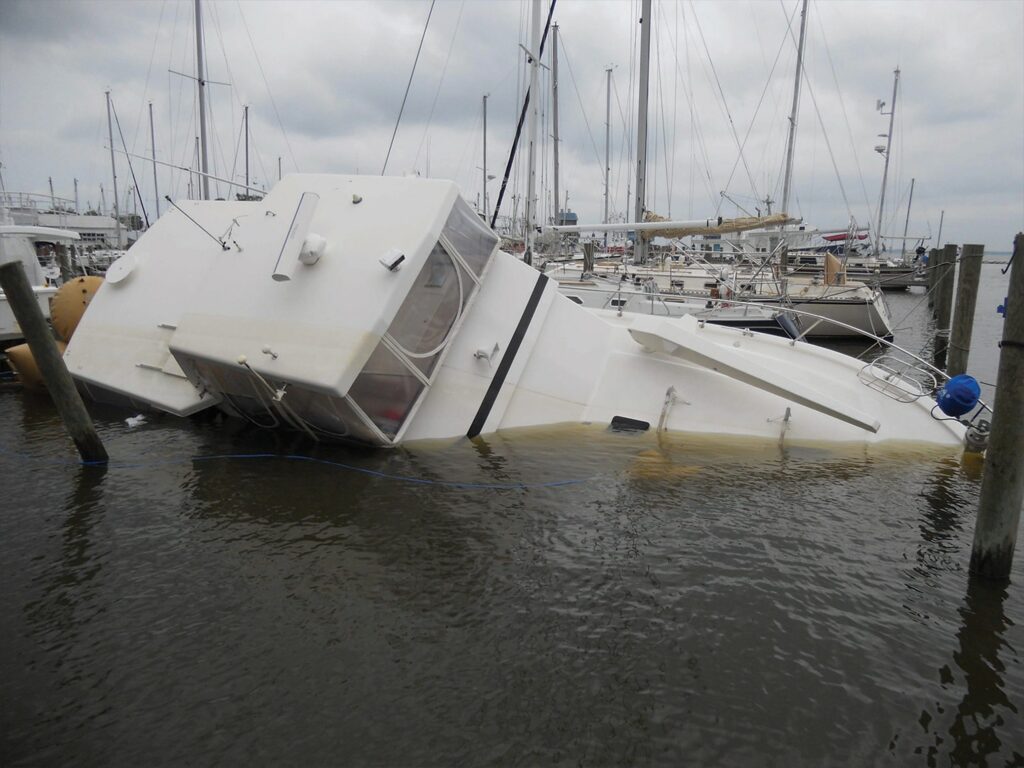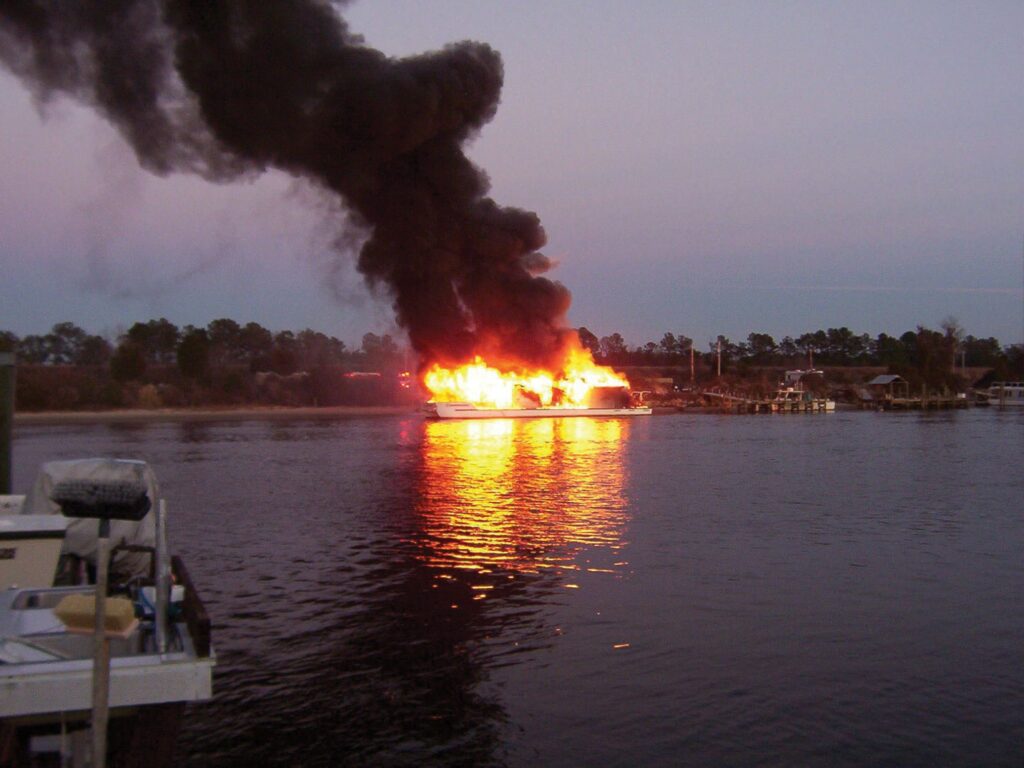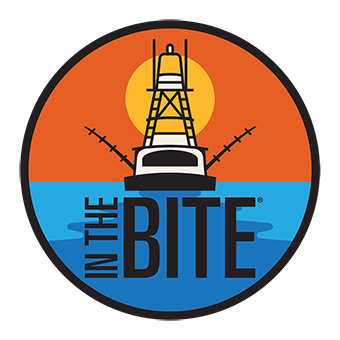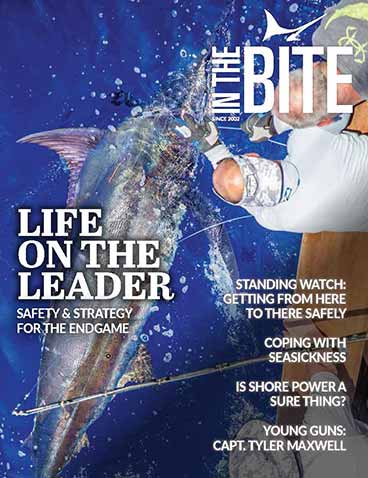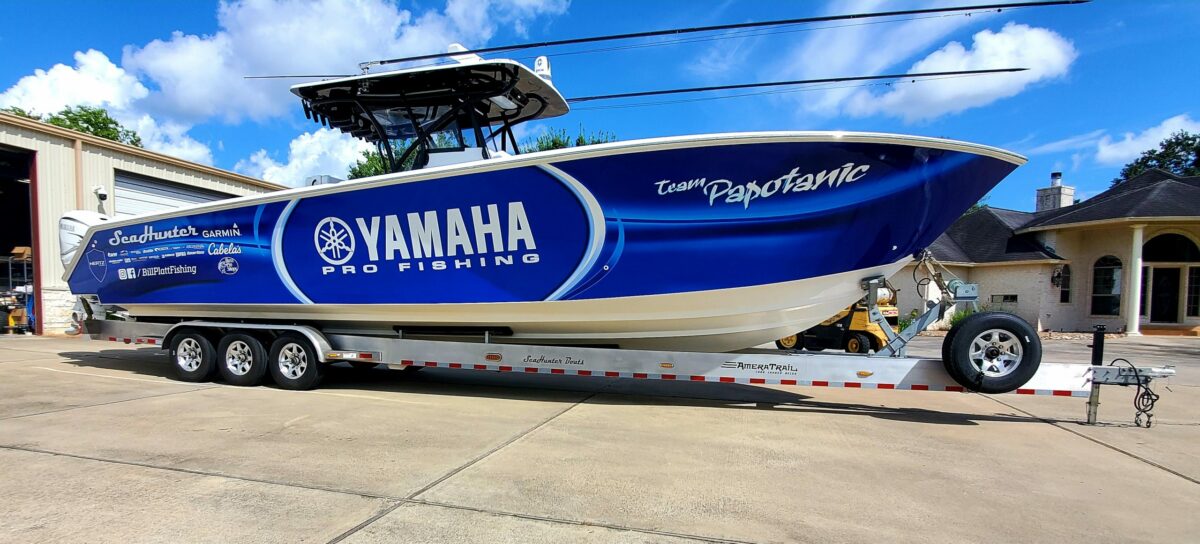
Maybe you’ve worked on boats”put in your time, mated for some folks all the while learning what to and what not to do. The result of your journey? You’ve finally been offered a job to run a boat. Or maybe you are a seasoned vet running an established program throughout the world.
Whether youre new to the helm or youre a seasoned captain, it helpful to take a step back and look at your program from both a fishing and a business/legal perspective. I remember my first interview before beginning my career as a mate. The captain stated that fishing is the easy part. I didnt really realize what he was talking about until I was sweating bullets in the Broward yard (in June) sanding/ waxing the new boat fishing is fun! While no one has ever been sued by a marlin or tuna, the business and legal aspects to running a boat can be a multitude of minefields, moving parts, and troubles lurking around and under every inlet. I realize the last thing that most folks reading this magazine want to do is listen to some lawyer, but my time on the water was followed by my legal training. Since earning a law degree, I have been practicing maritime law and general civil litigation.
The result of this combined cockpit/courtroom experience is a unique perspective on the many issues faced by captains, mates, and owners alike. Just like in fishing, being prepared for any situation that can arise while working on or owning a sportfishing vessel is critical. The following is an overview of how to protect yourself and your assets whether you are hired to run a sportfishing vessel or own one yourself.
Insurance & Liability: Protecting yourself, your job, and assets
Im not an insurance salesman (Im the one usually fighting the insurance companies), but having sufficient coverage for your fishing operation is critical. Having the proper coverage is a vital component to protecting not only your job and personal assets, but also those of the business and owner. A good, knowledgeable, and honest insurance agent who is versed in the maritime industry is an important asset. It vitally important to sit down with the boat owner once a year and reassess your coverage needs for the next term.
This is especially important if yours is a traveling operation. Many policies exclude certain areas during hurricane season or may have an offshore mileage limit, although additional insurance may be purchased to cover those areas. Also, if your operation deals with multiple assets such as a primary vessel, tender, mothership, etc., it important to make sure every asset is covered. To help answer some of these coverage issues I spoke to Kristen Sykes, president of Latitude 34 Insurance Group, Inc. headquartered in Morehead City, North Carolina (www.latitude34insurance.com). The crew at Latitude 34 specializes in all facets of marine insurance from personal watercraft to commercial and charter policies, and everything in between.
 The Basics
There are two different coverage options when insuring your vessel agreed value and actual cash value. Agreed value policies usually pay the amount shown on the policy. For example, if you have insured your $1,000,000 vessel using the agreed value and suffer a total loss, the insurance company will reimburse you $1,000,000 (usually minus your deductible).
These policies are beneficial because depreciation and/or the market value of the asset is not taken into consideration. Essentially there will be no big surprises in the event of the unimaginable. Since these policies are based on an agreed value, the premiums are higher than actual cash value policies. An actual cash value policy provides less coverage than an agreed value policy, but the actual cash value policy premiums are also lower.
An actual cash value policy provides coverage up to the current market value of the vessel, taking into account depreciation and the current market value. If you suffer a total loss on your $1,000,000 vessel with an actual cash value policy, there will be no initial hard number such as an agreed value policy. As you can imagine this can lead to disputes and possible litigation.
Each policy has its pros and cons, and it wise to discuss each option with a maritime insurance professional. According to Boat Owners Association of the U.S. injuries make the top ten list for insurance payouts not because of their frequency, but because the amount of the settlements tend to be so expensive. Kristen states that the ideal Protection & Indemnity coverage in a yacht policy would cover bodily injury, third party property damage and wreck removal.
She further advises that the insured vessel needs to be mindful of the risks assumed solely based on the value of the boats surrounding you. For example, if your vessel caught fire at a dock and the fire spread to the neighboring vessel, be sure you have adequate limits to cover your liability in that scenario. Along these lines, a separate fuel spill liability limit is important. This policy typically matches the statutory limit of $939,800 as set per The Oil Pollution Act of 1990 (OPA 90).
Some policies only offer fuel spill coverage if the event occurs resulting from a covered loss. Other times, fuel spill coverage is offered out of your Protection & Indemnity Liability limit. Kristen says that an ideal policy would offer you a separate fuel spill liability limit equivalent to the maximum statutory limit you could be held liable for, currently $939,800.
The Basics
There are two different coverage options when insuring your vessel agreed value and actual cash value. Agreed value policies usually pay the amount shown on the policy. For example, if you have insured your $1,000,000 vessel using the agreed value and suffer a total loss, the insurance company will reimburse you $1,000,000 (usually minus your deductible).
These policies are beneficial because depreciation and/or the market value of the asset is not taken into consideration. Essentially there will be no big surprises in the event of the unimaginable. Since these policies are based on an agreed value, the premiums are higher than actual cash value policies. An actual cash value policy provides less coverage than an agreed value policy, but the actual cash value policy premiums are also lower.
An actual cash value policy provides coverage up to the current market value of the vessel, taking into account depreciation and the current market value. If you suffer a total loss on your $1,000,000 vessel with an actual cash value policy, there will be no initial hard number such as an agreed value policy. As you can imagine this can lead to disputes and possible litigation.
Each policy has its pros and cons, and it wise to discuss each option with a maritime insurance professional. According to Boat Owners Association of the U.S. injuries make the top ten list for insurance payouts not because of their frequency, but because the amount of the settlements tend to be so expensive. Kristen states that the ideal Protection & Indemnity coverage in a yacht policy would cover bodily injury, third party property damage and wreck removal.
She further advises that the insured vessel needs to be mindful of the risks assumed solely based on the value of the boats surrounding you. For example, if your vessel caught fire at a dock and the fire spread to the neighboring vessel, be sure you have adequate limits to cover your liability in that scenario. Along these lines, a separate fuel spill liability limit is important. This policy typically matches the statutory limit of $939,800 as set per The Oil Pollution Act of 1990 (OPA 90).
Some policies only offer fuel spill coverage if the event occurs resulting from a covered loss. Other times, fuel spill coverage is offered out of your Protection & Indemnity Liability limit. Kristen says that an ideal policy would offer you a separate fuel spill liability limit equivalent to the maximum statutory limit you could be held liable for, currently $939,800.

Photo courtesy Latitude 34 Insurance Group, Inc.
When it comes to insurance, the policy needs of each sportfisher are as unique as the boats themselves. It important to make sure the coverages fit your specific needs. This is one of the reasons that having an insurance agent who understands the maritime industry and sportfishing scene is so critical”with a bit of background knowledge on how boating works a well-versed agent can guide your policy coverage.
Important policy considerations include, but are not limited to (1) navigational limits, (2) coverage for hired crew, and (3) recreational versus charter use. In addition to these three main areas, separate limits are important for hull coverage, protection and indemnity, uninsured boater, fuel spill liability, and medical payments. Other policy sections may include towing/ emergency assistance, personal effects coverage, and tender/dinghy coverage.
The typical yacht insurance policy includes the following sections: Hull, Protection & Indemnity (liability), Medical Payments, Fuel Spill Liability and Uninsured Boater. Kristen Sykes also provided a bit of additional context on a policy question that arises frequently among her clients”the medical payments (med pay) section of the policy. Customers frequently ask why the policy would include a separate medical payment policy when the vessel already has a large liability limit that covers bodily injury.
Her answer is an eye-opening one”and something that could save you money in the event of an injury-causing accident. Med pay covers medical injury to your passengers without them having to sue or even open a large claim. There is no med pay deductible and the injured party is reimbursed simply by the insured submitting proof of the medical expense to the insurance carrier. The idea is to protect the boat owner from dismayed individuals who may have suffered minor injuries before they may go running towards litigation. Typical med pay limits range from $1,000 – $25,000 per person per incident.

Photo courtesy Latitude 34 Insurance Group, Inc.
. Always make your needed navigational limits known to your insurance agent before the inception of the policy when the quote is being obtained. This includes north/south warranties, needed navigational limits outside of the continental U.S. as well as offshore mileage needs.
If youre fishing in the Gulf, make sure your coverage extends to your favorite rig¦
When traveling internationally, be aware of the insurance requirements that govern the jurisdiction in which you will be operating. For example, Mexico requires you to purchase a Mexican liability insurance policy in addition to your U.S. domiciled policy. This is for the duration of the vessel stay in Mexican waters.
The policy purported purpose is to cover potential damage to third parties. However, U.S. yacht insurance coverage typically extends into Mexico as long as your navigational limits stated in the policy permit you to operate there.
Crew Coverage
Crew coverage is a vital component to any crewed vessel. If you have hired crew members working on your vessel, you must specifically add crew coverage to your policy for EACH crew member. Doing so will help limit your legal liability and provide the coverage necessary under the Jones Act, the Death on the High Seas Act and/or general maritime law. Kristen cautions against a common misperception. Many policy holders assume that the most likely scenario for injury is one crew member being injured at a time”and purchasing that policy accordingly.
This is not necessarily the case. If you have more than one crew member, purchase coverage for the number of crew members you actually have. Not doing so could be grounds for policy cancellation. If you have a paid captain/crew, you are obligated by the Jones Act to provide maintenance and cure as well as indemnity to your crew (maintenance and cure as well as indemnity roughly translates to a seamen day-to-day living expenses and medical costs). Without the added crew coverage, your policy could exclude that coverage, leaving you personally liable for those expenses.
Towing Membership and Salvage Coverage
Not only is it smart to carry a premium BoatUS/Seatow membership, but you should also review your policy to
ensure you are covered in the event of a salvage and/or wreck removal. Whether it a salvage due to a weather event, submerged object, grounding, crew member gone crazy (it happened¦), or whatever the cause, it important to know that your vessel is protected. There is nothing inexpensive about a salvage claim, and you need to be properly covered.
Using a Limited Liability Company (LLC) to Your Advantage
If you do a lot of freelancing or are considered a 1099 employee, it can be beneficial to form a Limited Liability Company (LLC) to protect your personal assets from your business. An LLC is easy to set up, fairly inexpensive, and provides a cheap form of insurance to protect your business from your personal life, and vice versa. Meaning, if someone has a claim against your business entity (your LLC, Corp, etc.) they cannot go after your personal assets such as your house, car, and bank accounts. Only in extreme situations, such as fraud and using your company as a sham company, can someone pierce the corporate veil and disregard the legal entity to pursue personal assets. Of course, you have to run the LLC like a business, with separate bank accounts, filing taxes, operating expenses, etc., but it fairly straightforward. It is also a smart thing to do. There can also be tax benefits to using an LLC, but it is best to consult your accountant about dealing with those issues. The same argument goes for owning a vessel. It can be beneficial to shield yourself from potential liability by having title to your vessel in an LLC. As discussed earlier, an LLC helps to mitigate risk, and can provide certain tax benefits depending on the purpose of your vessel.
Employment Agreements & Tournament Winnings
Although a captain job is running a boat and everything that goes with it, a large portion of the work is performed on land. If you are provided benefits such as a company vehicle, it important to check your vehicle insurance coverage. Th e same goes for housing, as well as health insurance. It is also a very good idea to have some type of employment agreement with your owner. In my opinion, a lot of captain/owner agreements are too vague many are not reduced to writing at all. Remember this is a profession and not a hobby.
It beneficial to talk through any conceivable issues up front rather than wait for a situation to occur on the back end. Th e same goes with a mate. It important to have everything in writing and spelled out, especially if you are considered a full-time employee. When it comes tournament time, to be successful you have to be prepared. Th is carries over not only to fishing, but the accompanying paperwork.
As a mate I always had a written agreement with my percentage of winnings written out on a document and signed by the owner or charterer. It important to be precise as some owners/charterers may think 10% after expenses are paid, while your understanding was 10 percent off the top. As many are aware, a sudden windfall of cash can make folks behave differently. If the terms are agreed upon in writing, however, there can be little dispute once you get the big check. Always be transparent and talk through possible scenarios, it will prevent headaches/disputes after you are done celebrating.
In Conclusion
Owning or running a boat is a complicated affair with many parts. Insuring it properly and covering the many layers of liability is no less complicated. Th is overview is just the tip of the iceberg, but I hope it can provide some guidance to add value, protection, and stability to your operation. If you have any additional questions or issues (or need an extra hand to chamois), dont hesitate to give me a call or shoot me an email (contact info in bio). As with anything else, a bit of thought and care before there is a problem will save you a lot of headaches (and a pile of cash) if something were to arise. Tight lines and safe travels!

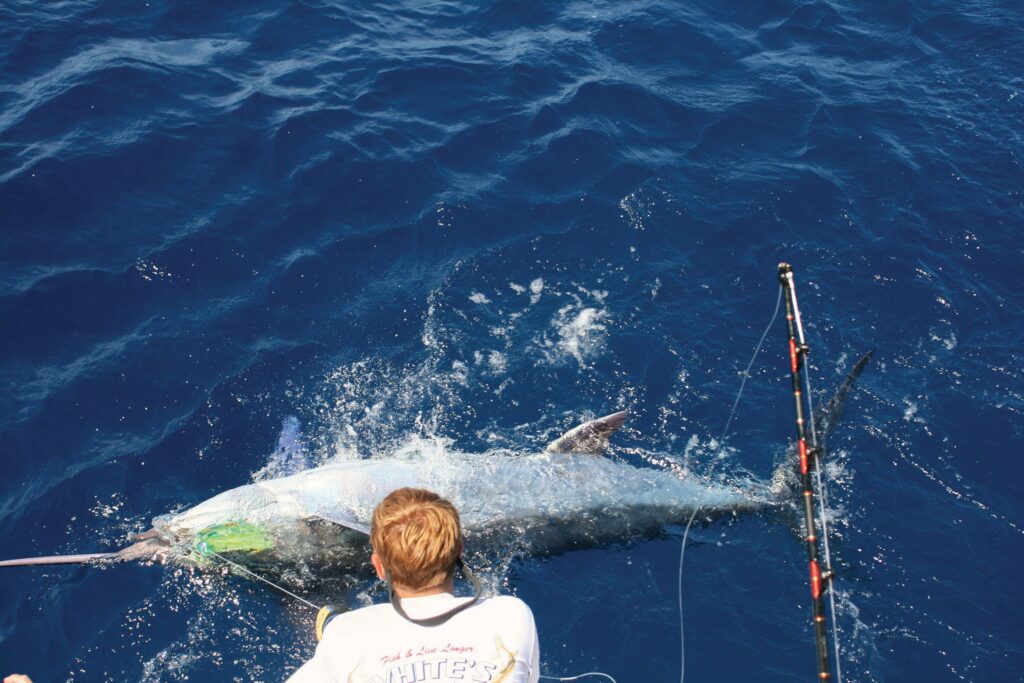 The Basics
There are two different coverage options when insuring your vessel agreed value and actual cash value. Agreed value policies usually pay the amount shown on the policy. For example, if you have insured your $1,000,000 vessel using the agreed value and suffer a total loss, the insurance company will reimburse you $1,000,000 (usually minus your deductible).
These policies are beneficial because depreciation and/or the market value of the asset is not taken into consideration. Essentially there will be no big surprises in the event of the unimaginable. Since these policies are based on an agreed value, the premiums are higher than actual cash value policies. An actual cash value policy provides less coverage than an agreed value policy, but the actual cash value policy premiums are also lower.
An actual cash value policy provides coverage up to the current market value of the vessel, taking into account depreciation and the current market value. If you suffer a total loss on your $1,000,000 vessel with an actual cash value policy, there will be no initial hard number such as an agreed value policy. As you can imagine this can lead to disputes and possible litigation.
Each policy has its pros and cons, and it wise to discuss each option with a maritime insurance professional. According to Boat Owners Association of the U.S. injuries make the top ten list for insurance payouts not because of their frequency, but because the amount of the settlements tend to be so expensive. Kristen states that the ideal Protection & Indemnity coverage in a yacht policy would cover bodily injury, third party property damage and wreck removal.
She further advises that the insured vessel needs to be mindful of the risks assumed solely based on the value of the boats surrounding you. For example, if your vessel caught fire at a dock and the fire spread to the neighboring vessel, be sure you have adequate limits to cover your liability in that scenario. Along these lines, a separate fuel spill liability limit is important. This policy typically matches the statutory limit of $939,800 as set per The Oil Pollution Act of 1990 (OPA 90).
Some policies only offer fuel spill coverage if the event occurs resulting from a covered loss. Other times, fuel spill coverage is offered out of your Protection & Indemnity Liability limit. Kristen says that an ideal policy would offer you a separate fuel spill liability limit equivalent to the maximum statutory limit you could be held liable for, currently $939,800.
The Basics
There are two different coverage options when insuring your vessel agreed value and actual cash value. Agreed value policies usually pay the amount shown on the policy. For example, if you have insured your $1,000,000 vessel using the agreed value and suffer a total loss, the insurance company will reimburse you $1,000,000 (usually minus your deductible).
These policies are beneficial because depreciation and/or the market value of the asset is not taken into consideration. Essentially there will be no big surprises in the event of the unimaginable. Since these policies are based on an agreed value, the premiums are higher than actual cash value policies. An actual cash value policy provides less coverage than an agreed value policy, but the actual cash value policy premiums are also lower.
An actual cash value policy provides coverage up to the current market value of the vessel, taking into account depreciation and the current market value. If you suffer a total loss on your $1,000,000 vessel with an actual cash value policy, there will be no initial hard number such as an agreed value policy. As you can imagine this can lead to disputes and possible litigation.
Each policy has its pros and cons, and it wise to discuss each option with a maritime insurance professional. According to Boat Owners Association of the U.S. injuries make the top ten list for insurance payouts not because of their frequency, but because the amount of the settlements tend to be so expensive. Kristen states that the ideal Protection & Indemnity coverage in a yacht policy would cover bodily injury, third party property damage and wreck removal.
She further advises that the insured vessel needs to be mindful of the risks assumed solely based on the value of the boats surrounding you. For example, if your vessel caught fire at a dock and the fire spread to the neighboring vessel, be sure you have adequate limits to cover your liability in that scenario. Along these lines, a separate fuel spill liability limit is important. This policy typically matches the statutory limit of $939,800 as set per The Oil Pollution Act of 1990 (OPA 90).
Some policies only offer fuel spill coverage if the event occurs resulting from a covered loss. Other times, fuel spill coverage is offered out of your Protection & Indemnity Liability limit. Kristen says that an ideal policy would offer you a separate fuel spill liability limit equivalent to the maximum statutory limit you could be held liable for, currently $939,800.
